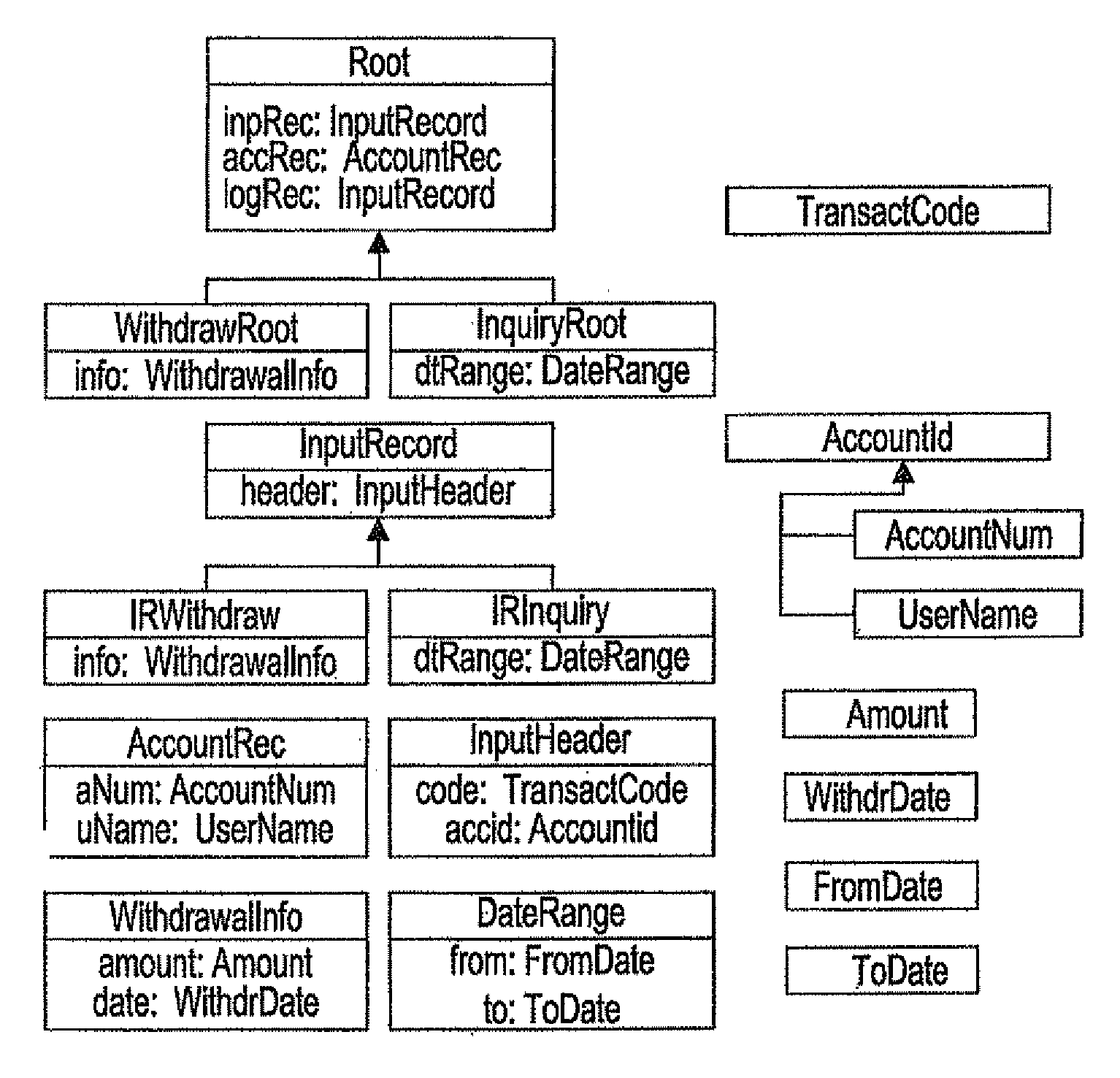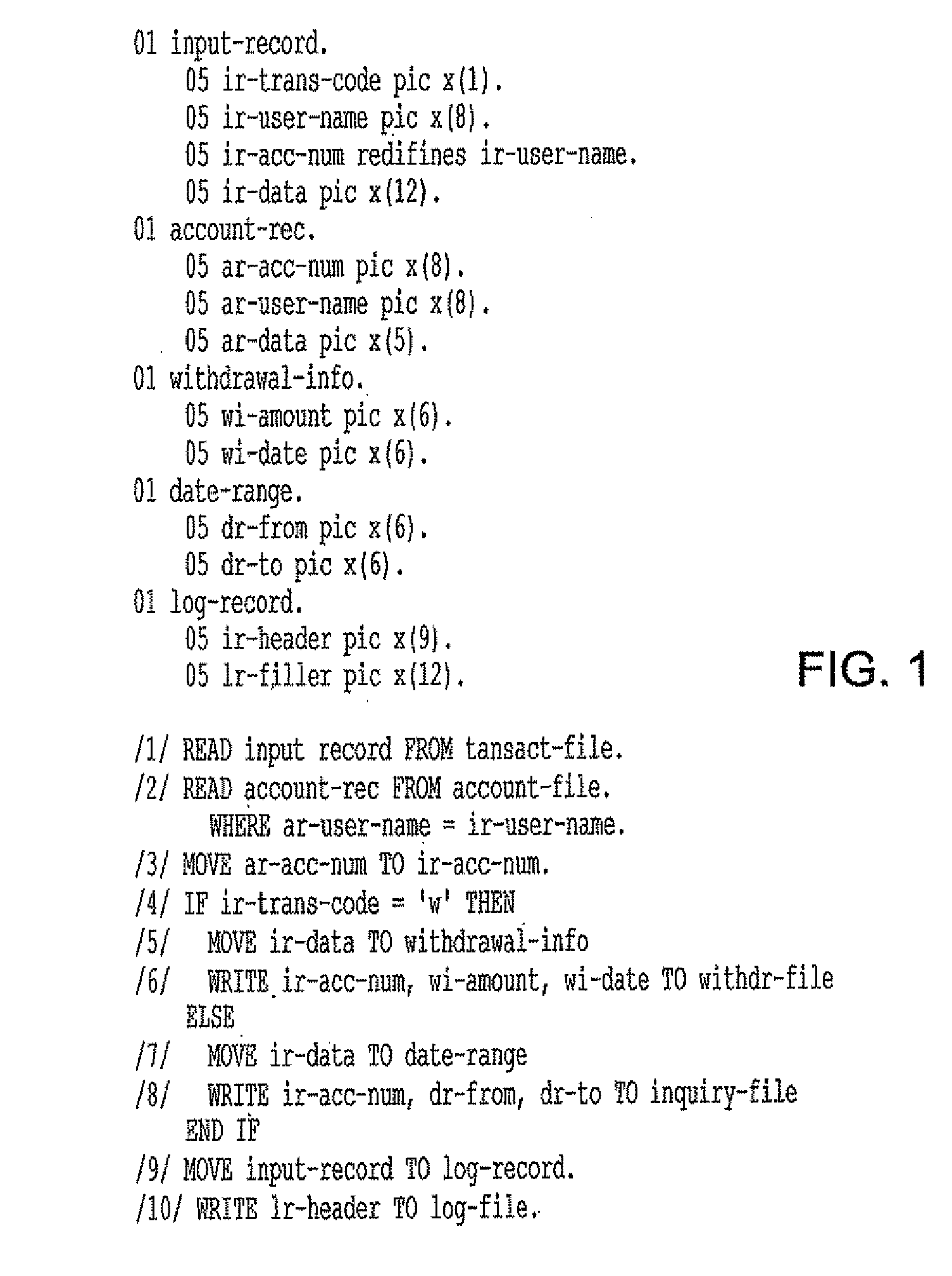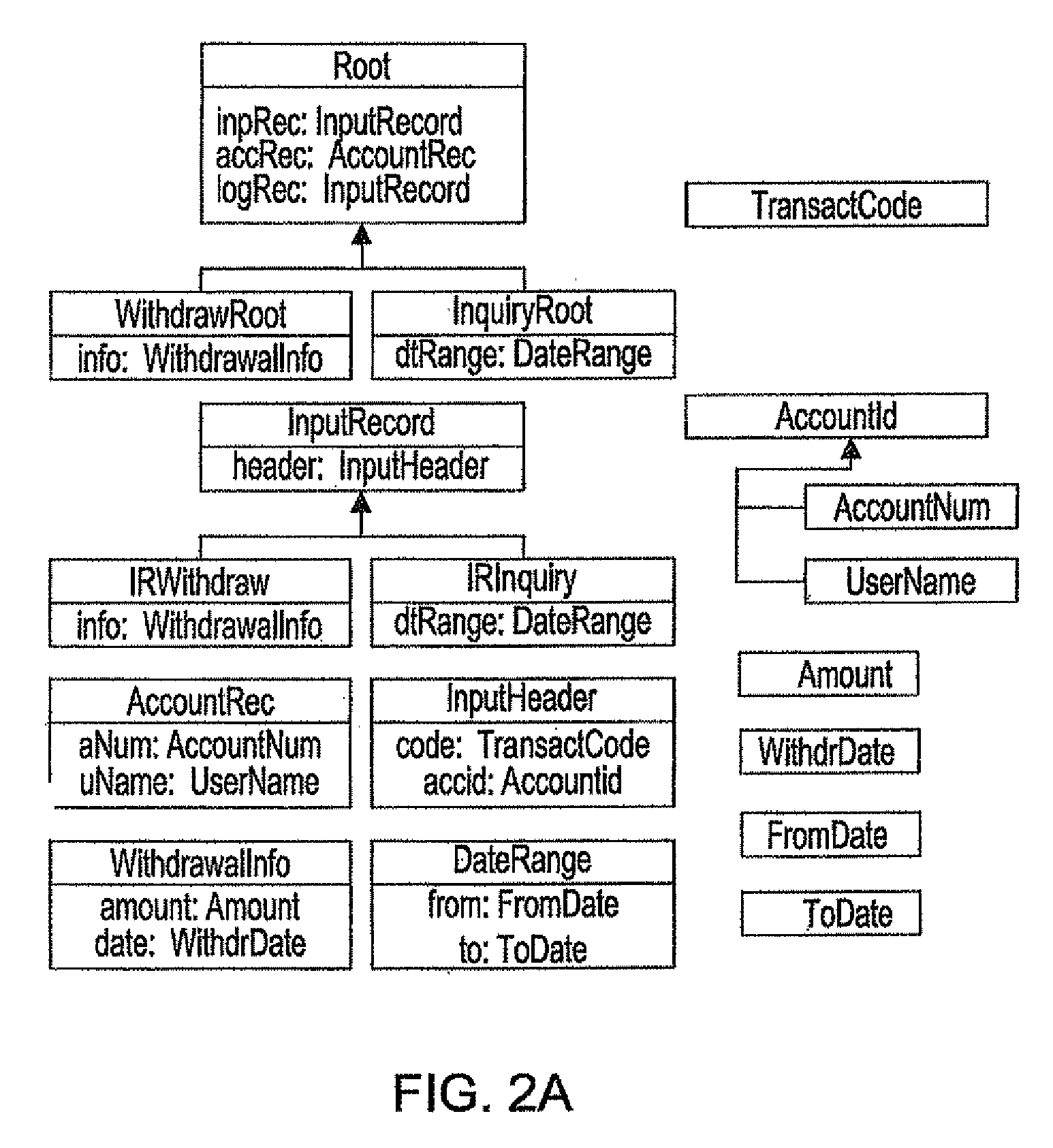System and method for a logical-model based application understanding and transformation
a logical model and application technology, applied in reverse engineering, instruments, computing, etc., can solve the problems of affecting the understanding and maintenance of legacy data, losing any logical structure, and becoming difficult to understand and maintain, and affecting the maintenance of computer applications
- Summary
- Abstract
- Description
- Claims
- Application Information
AI Technical Summary
Benefits of technology
Problems solved by technology
Method used
Image
Examples
Embodiment Construction
[0044]Despite myriad advances in programming languages since business computing became widespread in the 1950s, legacy applications written in weakly typed languages like Cobol still constitute the computing backbone of many businesses. Such applications are notoriously difficult and time-consuming to update in response to changing business requirements. This difficulty very often stems from the fact that the logical structure of these applications and the data they manipulate is not apparent from the program text. Two sources for this phenomenon are the lack of modern abstraction mechanisms in legacy languages, and the gradual deterioration of the structure of code and data due to repeated ad-hoc maintenance activities.
[0045]The present invention addresses the problem of recovering object-oriented data models from legacy programs, which, can facilitate a variety of program maintenance activities by providing a better understanding of logical data relationships. The recovered models...
PUM
 Login to View More
Login to View More Abstract
Description
Claims
Application Information
 Login to View More
Login to View More - R&D
- Intellectual Property
- Life Sciences
- Materials
- Tech Scout
- Unparalleled Data Quality
- Higher Quality Content
- 60% Fewer Hallucinations
Browse by: Latest US Patents, China's latest patents, Technical Efficacy Thesaurus, Application Domain, Technology Topic, Popular Technical Reports.
© 2025 PatSnap. All rights reserved.Legal|Privacy policy|Modern Slavery Act Transparency Statement|Sitemap|About US| Contact US: help@patsnap.com



